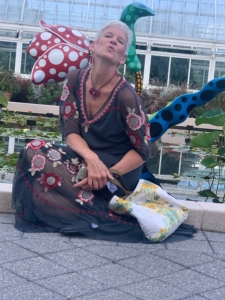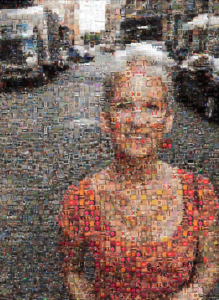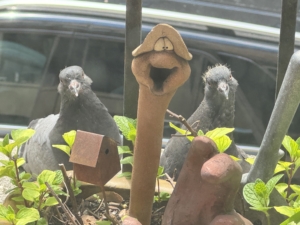BodyLogos Blog
Welcome to the BodyLogos blog. Here’s where you’ll get your dose of alignment and balance with grace. (Sign up here to join 1,000 other blog subscribers.)
Redefining Strength
I want to change our perception of strength. Strength is the ability to meet resistance and influence an outcome without compromising ourselves. And we already have it.
Strength is not an attribute; it’s a state of being. Gladiators, bodybuilders, and football players demonstrate strength through brute force, sheer willpower, muscle mass, and relentless pursuit. But we’re also quick to identify dancers and martial artists as strong. Their medium taps into a sense of vulnerability, balance, alignment, controlled power, and grace—but no one can deny their strength. Strength may look different on each of us, but it is an inherent part of who we are.
You are not weak by nature; you are stronger than you think. Your strength is not something you need to kill yourself to gain—it is already within you, waiting to be excavated. The key is to stop chasing something you already have and tap into it, so you can manifest that strength in your everyday life.
Because we don’t think we’re strong, we approach resistance with the idea that we’re not enough. We throw everything we have at it and push past our physical, mental, and emotional limitations. We see strength as domination, but it’s not.
When you learn to listen to your body’s divine wisdom, you cultivate a sense of where your body is developing tension instead of standing in its strength. You end the vicious cycle of unrealistic expectations, injury, and self-criticism and learn how to consciously embrace responsible growth. You stop compartmentalizing your strength into emotional, physical, and mental pieces and operate from the strength of your being at all times.
You learn how to align yourself with gravity—instead of working against it—so you can channel your strength to meet life’s resistance. As you meet resistance with equal parts power and alignment, you transform tension into strength
As in the sword dance above, the power lies in bringing just the right amount of force—not too little and not too much. By meeting the sword’s weight, I meet gravity. I am tapped into a larger source of energy, free of tension, and discover a strength that is wholly and uniquely mine.





 About Tammy Wise
About Tammy Wise
Passion Project or Purpose Project?
by Tammy WiseTammy wearing her crafted jewelry
What do you do when your Passion Project takes over your Purpose Project?!
With a full time personal training practice, creating my latest app product—The Art of Posture—has been a slow build. My time is always mortgaged out to clients. At least that’s what I tell myself.
What makes me question my time excuse is that, since I started making jewelry and envisioning an Etsy store, I find time to make jewelry. Mostly weekends, but occasionally during the week I also indulge!
I tell myself, I “should” only indulge in my Passion of making jewelry on weekends, and during the week all free time “should” be committed to my Purpose in creating my app!
But these “mental shoulds”depressed my creativity in both directions with joyless rules.
So I asked myself, how can I create time to have it all?
I love my vocation around mind body fitness and posture, as well as my avocation, around crafting jewelry and beading.
Is this an either / or situation?
Then, when working with a client on posture, I was reminded that the body always shows us the way. When standing still, she was able to adopt a relaxed, centered, square skeletal frame; but, when engaged in movement she couldn’t maintain it.
We discussed how:
• The weight of her body (bones) and outside resistance (dumbbells) are a grounding force, not a burden.
• I suggested that she drop into her bones’ weight to feel more grounded when in motion.
• Aligning the skeleton by elongating her muscles centered her in her alignment (mind & body), but when she used muscle tension it diffused her alignment.
• I suggested that she focus on muscle quality, rather than movement size and speed, to maintain her alignment in motion.
She agreed that the fear of not being good enough led her toward tension and an urgency to be better than her best; while the Centered Grace she was now experiencing, using a more relaxed elongated muscle quality, felt timeless and meaningful.
There she was, having overslept, with bed-head hair, no caffeine or food, still feeling physically exhausted from her previous day’s monster walk, looking more sophisticated, confident and beautiful than I’d ever seen her.
And, as long as she maintained this grounded, elongated posture, she maintained her confidence.
This Centered Grace I’m talking about transforms time and space, offering a lightness of being to emerge. We become our best by extending ourselves into space, rather than muscling ourselves through space.
I walked away realizing I wasn’t following my own advice!
The WEIGHT of my Passion and Purpose Projects were both being thwarted by my fear of not being enough to do them both. But, when I relaxed about what I “should” have done already, the projects regained their meaning. And, time stood still.
I felt aligned again.
The QUALITY of my attention when aligning with these projects is what centers my creativity, not the number of minutes I have. It’s amazing how time can expand when I’m grounded and relaxed.
I feel joyful again.
Each video, script and lesson plan brings me closer to launching The Art of Posture. Every necklace, bracelet and earring made brings me closer to launching my Etsy store. Small steps strung together creates a successful journey.
Aligning with these projects starts with embodying Centered Grace. The rest will naturally unfold with the joy-filled passion and purpose I have for these projects.
Time is simply a space. The quality of that space is ours to create.
Start a conversation HERE about your Time Management for your Passion or Purpose Projects!